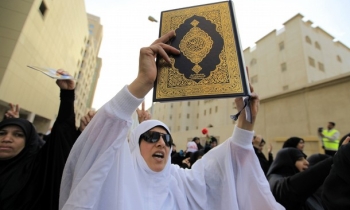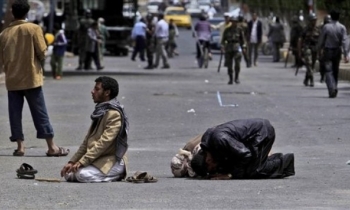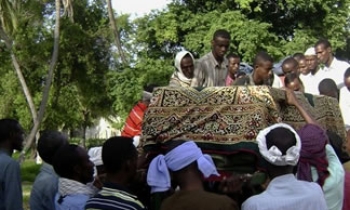An Afghanistan university student and journalist for daily newspaper Janan-e-Naw, Sayed Parvez Kambakhsh, faces the death penalty at his upcoming trial, according to the International Federation of Journalists (IFJ).
Parvez was detained on October 27, 2007, in the northern Afghan city of Mazhar-e-Sharif, accused of “insolence to the Islam” after he allegedly downloaded an article from a Farsi-language website and distributed it among four friends. Parvez has also been accused of possessing anti-Islamic books and starting un-Islamic debates during university classes.
Three months after his detention, Parvez is to be tried in a religious Islamic court on charges of blasphemy, punishable by death under Islamic law. After meeting with Parvez in jail on January 6, the provincial council of the Balkh Province appealed to the court for his release. On Saturday January 12 journalists gathered in Mazar-e-Sharif to publicly protest his detention and demand his release.
The protesters also called for the release of former journalist and spokesman for Afghanistan’s attorney-general, Ghows Zalmay, who was arrested on November 4, 2007, accused of the wrongful translation of the Quran into Dari, one of Afghanistan’s two official languages.
The Afghan Independent Journalists Association (AIJA) reported it is working with international journalists organisations to put pressure on the Balkh government to release the two journalists. AIJA also reported that it intended to hold protests throughout cities in Afghanistan and is working to find a lawyer for the journalists who currently do not have one to undertake their case at trial.
IFJ Asia-Pacific Director Jacqueline Park said the three-month detention of the journalists was of concern, and called upon the Afghanistan government to uphold Article 34 of the Constitution which states, “Freedom of expression shall be inviolable. Every Afghan shall have the right to express thoughts through speech, writing, illustrations as well as other means in accordance with provisions of this constitution. Every Afghan shall have the right, according to provisions of law, to print and publish on subjects without prior submission to state authorities”.
“In order for democracy to prevail in Afghanistan, authorities need to show that they respect the constitution. Parvez and Zalmay have already been detained for three months purely for carrying out their jobs — this violates right to free speech enshrined in the constitution of Afghanistan”.









